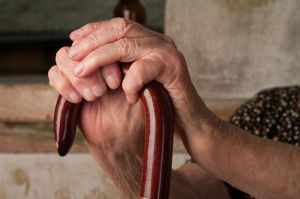Seniors and Hygiene: What You Need to Know
Seniors face many daily challenges. Hygiene can be one of those challenges. A senior with whose cognitive abilities or physical range of motion have recently declined may be in danger of things they’ve never never imagined. Through most of your life, you’re capable of sticking to basic sanitary needs. If you become forgetful with age, or you lose the ability to move in the way you once did, you’ll have issues.
Communication
Some seniors may not be willing or capable of communicating new hygiene needs. This is a sensitive issue. If you are a caregiver, you need to ensure that your patient (or family member, or client, etc) has a safe space in which to discuss problems like this. No one wants to ask for help going to the bathroom or showering. Nonetheless, these things happen and it’s crucial that seniors communicate these needs. As a caregiver, it’s your job to make it comfortable and face-saving as possible for people to come to you with hygiene issues.
Showering
With age, the simple shower can become a dangerous trap. Range of motion decreases and smaller accidents become more serious. For the elderly, a fall in the shower could cause a whole host of big problems. According to the National Institutes on Health (NIH), falling down is a “common reason for trips to the emergency room and for hospital stays among older adults. For a senior, one broken bone could be the difference between independence in a lifelong home and being stuck permanently in a long-term care facility like a nursing home.
Showering is an absolute hygiene must. If someone your provide care for is at risk of a shower fall, you need to be careful. Discuss safety. Keep tripping hazards off of the bathroom floor. A shower chair can work wonders for a senior in the shower, keeping her or him safe, while helping maintain independence and privacy.
Hand Washing
Handwashing prevents people of all ages from getting sick. This is nothing new to seniors. But for many seniors, hand washing has always been an important but relatively small matter; getting sickness was a minor hassle. Older adults have weakened immune systems. This means two things: 1) they get ill more easily 2) illness is much more serious. For the elderly, a simple flu can be life-threatening. According to flu.gov, “Ninety percent of flu-related deaths and more than half of flu-related hospitalizations occur in people age 65 and older.”
As a caregiver, it’s crucial that you remind senior of the importance of good hand hygiene. The Center for Disease Control and Prevention tells us to use soap and water, and to scrub for at least 20 seconds.
Oral Cares
Seniors are also at increased risk for dental health problems. The average person over the age of 65 has “lost an average of 13 teeth,” according to the NIDCR. Make sure any senior in your care brushes for at least two minutes at a time, 2 or 3 times daily. Modern gadgets like electric toothbrushes and water flossers may make this process easier.

